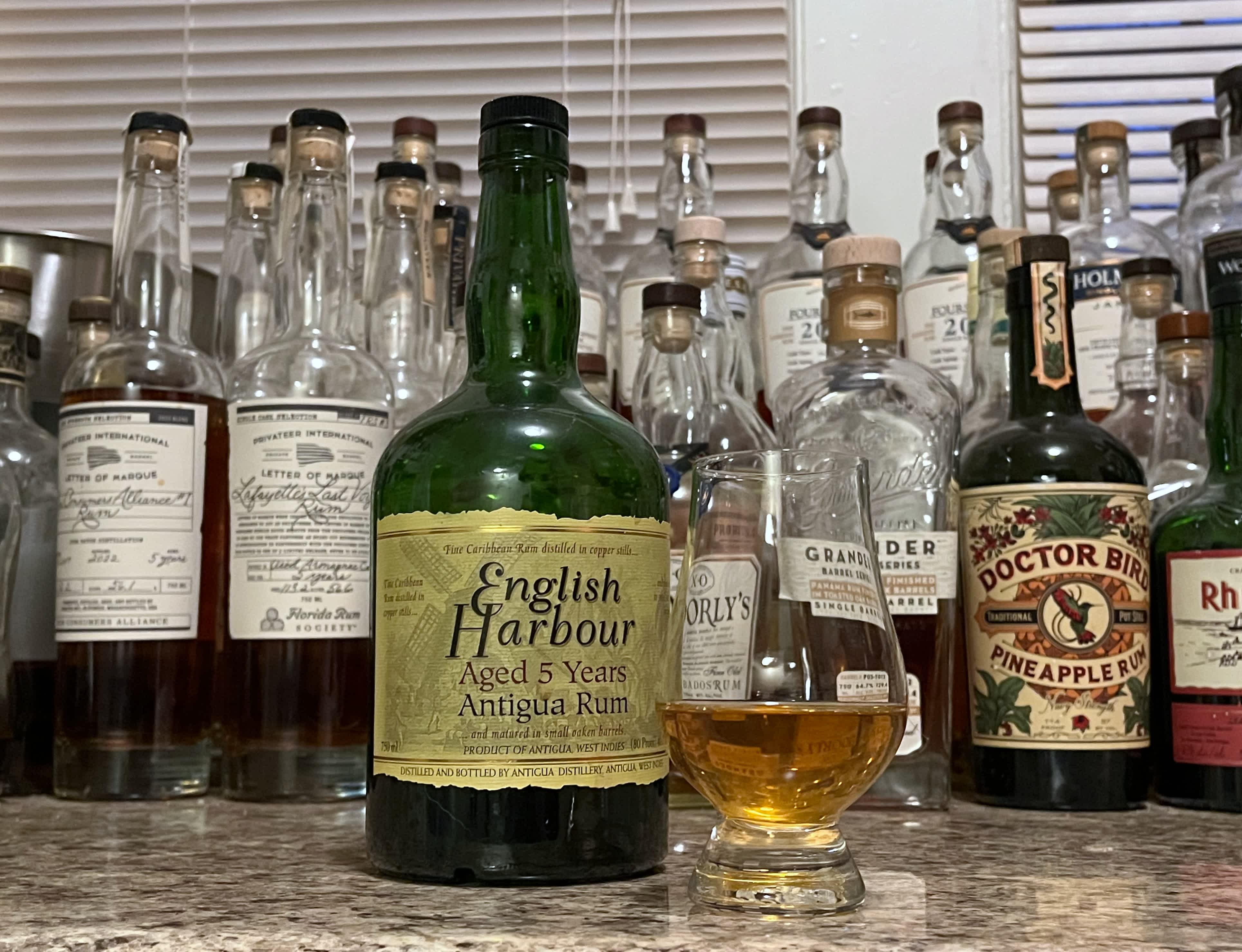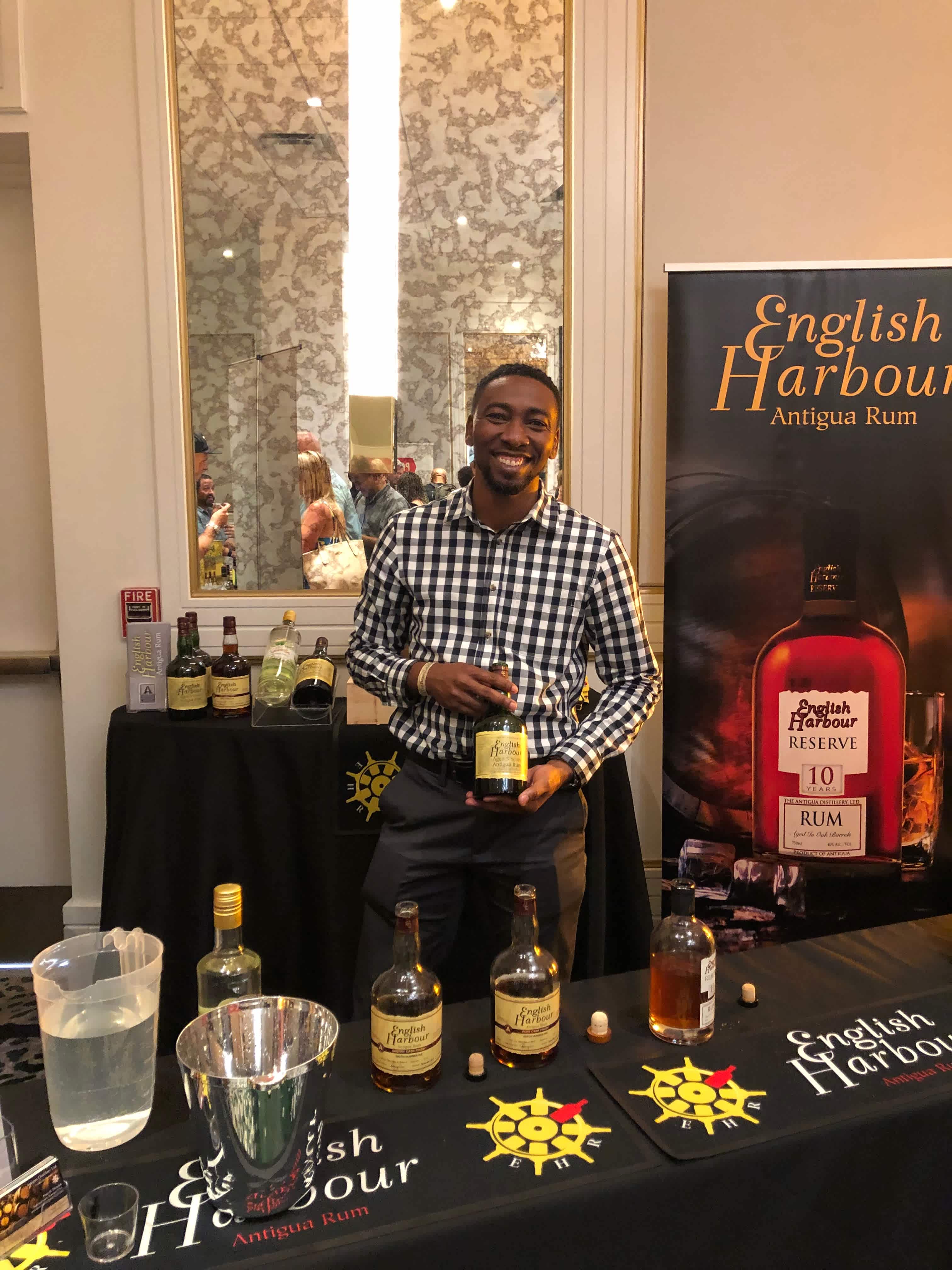Overview
Brand: English Harbor
Origin: Antigua Distillery Ltd., St. John's, Antigua, Antigua & Barbuda
Still: Column
Age: 5 years
Finish: ex-Bourbon
ABV: 40%
When people talk about Caribbean rum, it's not uncommon for the conversation to center around the heavyweights of the region: Barbados, Cuba, Jamaica, Martinique, and Puerto Rico. Of course, there are so many other distillers in these tropical waters, including the producer of the rum we are highlighting today.
Antigua Distillery Ltd. (ADL) produces English Harbour, and has been crafting rum since it started operating in St. John's, Antigua, in 1933. It was started as a business venture by a group of Portuguese rum shop owners, who were the primary recipients of the rum produced at the distillery, receiving an amount proportional to their investment. Throughout the 1930s and 1940s, the company purchased a number of sugar estates to protect its supply of molasses, at one point amassing ownership of 8 estates and 2,500 acres of sugarcane.
According to Modern Caribbean Rum, there was not a high demand for this rum on the island, but that changed after World War II saw American troops stationed on the island, which bolstered local consumption post-war. In the 1960s, ADL shifted its style to produce lighter-bodied rum, similar to other distillers at the time; before the 60s, it's possible the rum would have had a more robust profile.
The brand English Harbour was created in 1990, although the first 5 year expression was released in 1981, as a celebration of Antigua and Barbuda's independence from the United Kingdom. The base rums are distilled in ADL's 3 column still, and blended after a maturation of at least 5 years in ex-Bourbon casks, before bottling at 40% ABV.
On their website, English Harbour lists only their 5 year, 10 year, and special 1981 vintage expressions as their range, however in recent years they have been experimenting with port and sherry cask finishes. I had the pleasure of meeting Calbert Francis, the Global Exports Manager for ADL, at the Miami Rum Congress; he had some of these cask finishes available for tasting. These were really promising samples, and I hope to find English Harbour– including their cask finishes– in the Memphis market soon.
Appearance
Marigold, medium clarity, medium viscosity
Nose
Caramel, hint of marizpan, molasses, saltwater taffy
Palate
Vanilla, caramel, oak, ethanol
Finish
Medium, oaky, plain; oak, vanilla
Rating: 5/10
Summary
This 5 year expression of English Harbour is fine; nothing more, and nothing less. It has very simple flavors, like Brugal 1888, and is just un-challenging to the palate. That is not to say that this is bad, as the flavors are nice and well-constructed; it just leaves a bit to be desired.
The rum is marigold in my glass, with medium clarity and medium viscosity.
On the nose, I get caramel, a hint of marizpan, molasses, and saltwater taffy. The aromas are pretty similar to those of Bajan rums, such as Mount Gay Eclipse or The Real McCoy 5 year.
The palate is equally simple, with notes of vanilla, caramel, oak, and ethanol. Nothing else really stands out to me here, and again draws comparison to Bajan style rums. It's nice, but could use a bump to even 43% ABV to make a little more of an impression.
English Harbour's finish is medium length, oaky, and plain. I only get notes of oak and vanilla as the experience fades out.
While I would be hard-pressed to pick this rum out of a lineup of similarly-proofed and aged rums, English Harbour 5 year is a safe choice if you are looking to expand beyond the usual suspects of rum origins. Although reportedly containing additives (according to thefatrumpirate's hydrometer tests, as of 2015), this is still a decent expression one could use to introduce rum to their friends. Having tried the Port and Sherry cask-finished rums at Miami Rum Congress, I can definitely say that English Harbour is a distiller to watch, although this particular bottle could be skipped without missing out on anything.

